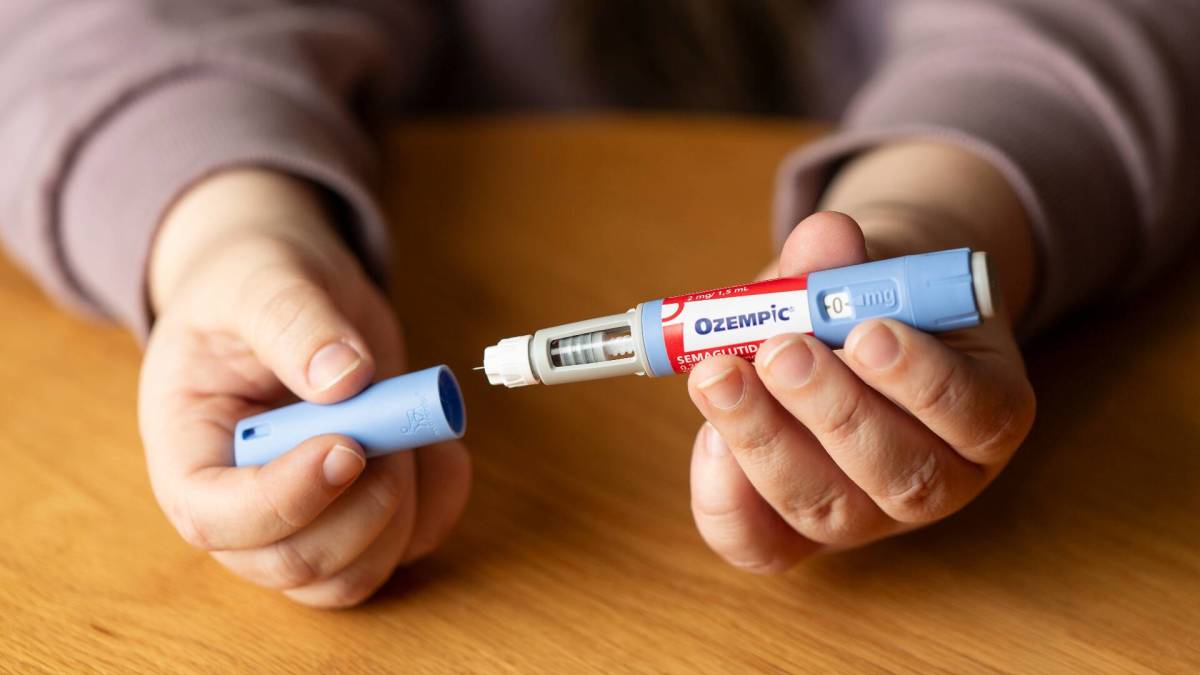Medicare Policy Changes May Soon Include Weight-loss Drug Coverage

GLP-1s are prescription medications traditionally used to help regulate blood sugar in patients with diabetes. Recently, they’ve gained widespread popularity to treat obesity and promote weight loss.
However, affordability is one of the greatest barriers to accessing GLP-1s for weight loss. Most public and private health insurance plans only cover weight loss drugs for patients with diabetes, but that could change soon.
Don't miss the move: SIGN UP for TheStreet's FREE daily newsletter
Common GLP1-s like Novo Nordisk’s Ozempic and Eli Lilly’s Wegovy can cost consumers $1,000 monthly — out of pocket. Increasing the affordability of weight loss drugs through health insurance coverage could increase universal accessibility.
Discussions have taken place on Capitol Hill for public healthcare systems to provide weight loss drug coverage, and there have also been some policy advancements.
A person is seen getting ready to inject an Ozempic dose.Shutterstock
Consumer demand for GLP-1 coverage is strong amid push for broader insurance coverage
Recently proposed healthcare policies aim to expand weight-loss drug coverage for Medicare and Medicaid beneficiaries.
Medicare provides federal health insurance to Americans 65 and older, while Medicaid is a joint federal and state program that provides coverage for Americans of all ages with limited income.
The 2023 Treat and Reduce Obesity Act would authorize Medicare Part D to cover weight-loss drugs. A pared-down version of the bill passed through the House of Representatives earlier this year, and the Center for Medicare & Medicaid Services announced it would allow plans under Medicare Part D to cover weight-loss drugs contingent on FDA approval.
More on weight-loss drugs:
- Mark Cuban has compelling words about Ozempic and Cost Plus Drugs
- Ozempic, weight-loss drugs rise and the fitness industry reacts
- How anti-obesity drugs force a change of focus on health
Many healthcare and insurance experts believe private health insurance companies will follow the lead of public health care programs if Medicare begins covering weight-loss drugs universally. And the majority of Americans are supportive of the recent push to expand weight-loss drug coverage.
More than half of consumers think health insurance should cover GLP-1s for anyone who wants to lose weight, and 50% would support coverage even if it meant insurance premiums would increase. However, most Americans don’t trust pharmaceutical companies to price drugs fairly.
Medicaid coverage of weight loss drugs for obesity treatment is still limited, but it’s growing. The share of GLP-1 Medicaid prescriptions increased from 0.1% in 2019 to 0.5% in 2023. If TROA is passed, that number could significantly rise.
Experts are divided on the total cost of expanding Medicare weight loss drug coverage
Although there are substantial benefits to increasing healthcare coverage for weight-loss drugs, the Congressional Budget Office has reported that covering anti-obesity drugs would cost the federal government $35 billion between 2026 and 2034.
Related: New health care policy changes will soon affect weight-loss drugs
Weight-loss drug proponents argue that these federal estimates don’t factor in the massive savings to the healthcare system if Americans are given widespread access to weight-loss medications. Obesity currently costs the U.S. healthcare system $173 billion per year.
While some healthcare experts note that alleviating the burden of treating medical issues associated with obesity could save the industry billions in the long run, the Congressional Budget Office estimates the savings from improvements to Medicare beneficiaries’ health would only be $1 billion annually by 2030.
For now, Medicaid and Medicare can only cover GLP-1s to treat those with obesity or who have suffered heart attacks or strokes.
Related: Veteran fund manager sees world of pain coming for stocks


